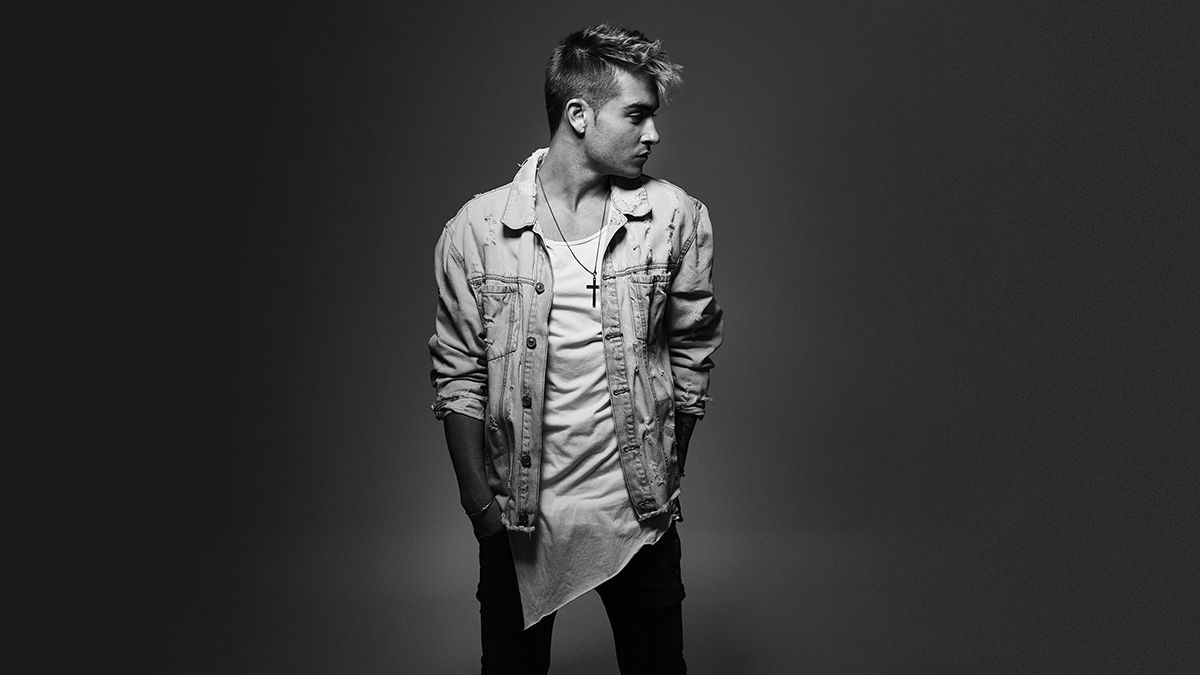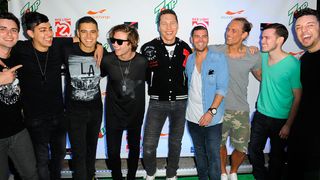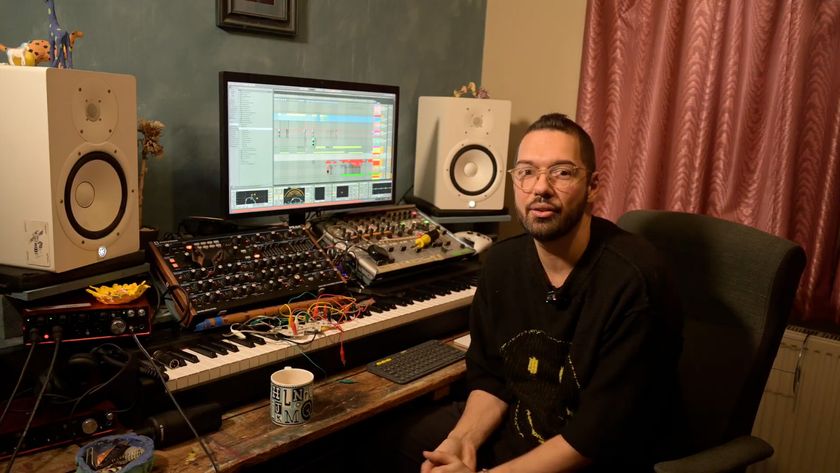Danny Avila: "It’s important to take your technique to the next level, whether that’s by keeping your eye on the latest gear or applying new techniques."
Spanish electro house star discusses his DJ lifestyle and production

One of the hottest young talents in EDM, Spanish bedroom producer and DJ, Danny Avila, has achieved a considerable amount of success in very little time. Predicted to be the next DJ superstar by Tiësto, no less, his US profile is rapidly expanding on all fronts.
22-year-old Danny Avila is taking the world by storm due to DJ sets at a string of renowned club residencies and some of the largest festivals in the world, including Coachella. He began Djing at the tender age of 12, before tentatively moving into production where he was mentored by childhood idol and Dutch House DJ and producer Fedde Le Grand.
Avila’s first DJ set was in 2010 at the Spanish club Kapital. Within a year, he was winning awards and being touted as one of the hottest young DJs on the planet, signing a contract with MGM Grand Las Vegas for gigs at its Hakkasan nightclub, where Avila rubbed shoulders with Tiësto, Steve Aoki and DeadMau5.
We talk to Danny about his entry into the world of DJing and how that has evolved into a career in production...

What was it about DJing that first interested you?
“Up until I was six or seven years old, I played piano, guitar and the violin, but every time I watched TV and saw a DJ it would grab my attention.
“The reason I started DJing was because I saw it as an instrument, so when I was 12 or 13 I bought this really small and simple mixer and became really passionate about DJing, without really thinking too much about what was going to happen.”
Get the MusicRadar Newsletter
Want all the hottest music and gear news, reviews, deals, features and more, direct to your inbox? Sign up here.
Did any DJs influence you in particular?
“Back in the day, the whole scene was very different to how it is right now, but I was really into Roger Sanchez and Fedde Le Grand, who was one of my biggest idols at the time.
“It’s funny, because over the years we’ve actually become friends. I was also really into the Toolroom label too, and all the associated sounds coming from that at the time.”
Can you remember the first DJ tools you acquired?
“I started with this really simple controller that cost something like €70, and started playing really shitty songs at friends’ birthday parties. But I’d be getting paid €30-40s every time I played, so eventually I moved to the next step and bought a Pioneer CDJ 700 and started to learn how to mix properly.”
What tips would you have for DJs starting out today?
“It requires quite a lot of time and practice, not just in terms of learning about the equipment but figuring out what sort of sound you want to play.
“These days it’s very easy to DJ and the equipment makes it very easy to mix BPMs and all that, but it’s important to take your technique to the next level, whether that’s by keeping your eye on the latest gear or applying new techniques.
“That’s what makes a DJ a bit more special than one who just plays one record after another.”
Is there anything about the modern DJ culture that irritates you?
Technology is evolving really fast, which is a great thing because we can do so much more than we ever could have imagined even 10 years ago.
“Technology is evolving really fast, which is a great thing because we can do so much more than we ever could have imagined even 10 years ago.
“The problem is DJs are taking advantage of that. The technology makes it very easy, so they don’t always take the time to learn the process of DJing or understand the history behind it.
“Some DJs will use the sync button to sync two tracks and think that’s enough, and I love the fact there’s a sync button because you can be so creative with it, but you need to know everything surrounding that and not just use it for mixing tracks, which is only a small part of it.”
What about the antics of the DJs themselves?
“I think when people go to a show, whether it’s a club or festival, they want to have a good time.
“Sometimes, people on social media complain about certain DJs acting or showing off a little bit too much, but people want to have that personal interaction with a DJ rather than watch them just playing for themselves.”
Is it difficult to make that step up to from clubs to the big festivals?
“For some, perhaps it is. Nowadays, a lot of people come out with a big track and become so huge they immediately have to start playing big festivals.
“In my case, it very much happened step by step. I started DJing very early and used to spend many hours practicing and making sure my mixes were perfect.
“I didn’t start playing at big festivals, but birthday parties, bars and in small clubs before going on to the bigger clubs, and that made it much easier for me to step onto the big stage.
“Of course, the first few times I played at the bigger festivals I was nervous, which is why being prepared is essential.”
What do you request prior to a gig?
“I have a technical rider that we send to the venues before every show. It’s basically four CDJs, a mixer and I always request a Pioneer RMX-1000 Remix Station, so I can add some style and play a little bit more during my set.
“We also tell the venues how the monitors should be so that everything will be perfect for the show. Sometimes, it’s difficult to make sure they get everything right and you can’t avoid technical problems.”
What can DJs do to differentiate themselves?
“If I had to give advice, I’d say that nowadays it’s really important to try and come up with something that can surprise an audience.
“We’ve all seen a thousand DJs pretty much playing all the big tracks and hits, but I’m more impressed when I go to a club and a DJ is playing a really cool set with tracks I’ve never heard before and clean transitions. So try to find you own path, don’t copy anyone and try to sound cool rather than taking the easy way out and doing what most DJs do.
“All of us play big songs once in a while, because you’re playing for the benefit of the audience. Sometimes I’ll play a few hits in a row and other times I’ll play one hit and four songs the crowd has hopefully never heard, before adding another hit.”
What do people least understand about the culture?
“Being constantly on tour is difficult because you have a hectic schedule and you’re always at airports and hotels.
“People don’t really realise how it is until they actually live it. I recently brought my brother on tour with me and he’d never experienced any of that.
“When he did, he realised how stressful it is. But on the other side, it’s incredible to be able to travel the world and play for different crowds, so while it’s tough you can’t complain because it’s a dream come true.
“At the moment, I’m DJing quite a lot. I’ve just done four shows in America and I’m going straight to Asia for three more.”
“I guess it’s tough that you don’t get to see your family and friends as much as you want, but that’s just part of the game. It helps if you can find some time for a vacation between doing crazy tours.”
You also produce of course?
I got into production around the same time as I became a DJ. I had a group of friends in Marbella and we’d hang out all the time and talk about music.
“I’d already started DJing a year before I met them, but I started going to their houses and watching them make music.”
In the beginning, everything was very simple and it took quite a long time to get a good sound. I didn’t really get it. Two of my friends were using FL Studio, so I started using that and then I switched to Logic after about a year. Then after two or three years I released my first house track?
And then you were bitten by the production bug?
“We were like nerds. We weren’t going out; we were just obsessed with making music, downloading loops and exchanging libraries.
“I don’t have much hardware because I’m on tour so much; I just have my laptop, headphones and my hard drive containing all my samples and libraries.
“For me, that’s enough to be able to write down some ideas, work on a remix or create a basic demo.
“Obviously, I can’t finalise it. I do that when I go back to my studio where I have much better speakers and a proper, treated room.”
What software are you most in-tune with these days?
“Plugin wise, I doubt I use anything too crazy that people have not already heard of. I love all the FabFilter stuff - I use the EQ all the time - and the Saturn is a great saturator and distortion plugin.
“In the end, for me it’s more about knowing exactly what you want rather than spending hours trying to find this or that plugin.
“I like to save time, so I won’t use 25 different reverbs or delays, I’ll go straight to the ones that I know will work for me.”
The new Danny Avila & The Vamps single ‘Too Go To Be True’ feat. Machine Gun Kelly is available now on Ultra Music. For more information, check out Danny’s Facebook page.

“My love letter to a vanished era that shaped not just my career but my identity”: Mark Ronson’s new memoir lifts the lid on his DJing career in '90s New York

“I'm always starting up sessions and not finishing them, but I don't see that as unproductive”: Virtuosic UK producer Djrum talks creativity and making Frekm Pt.2








